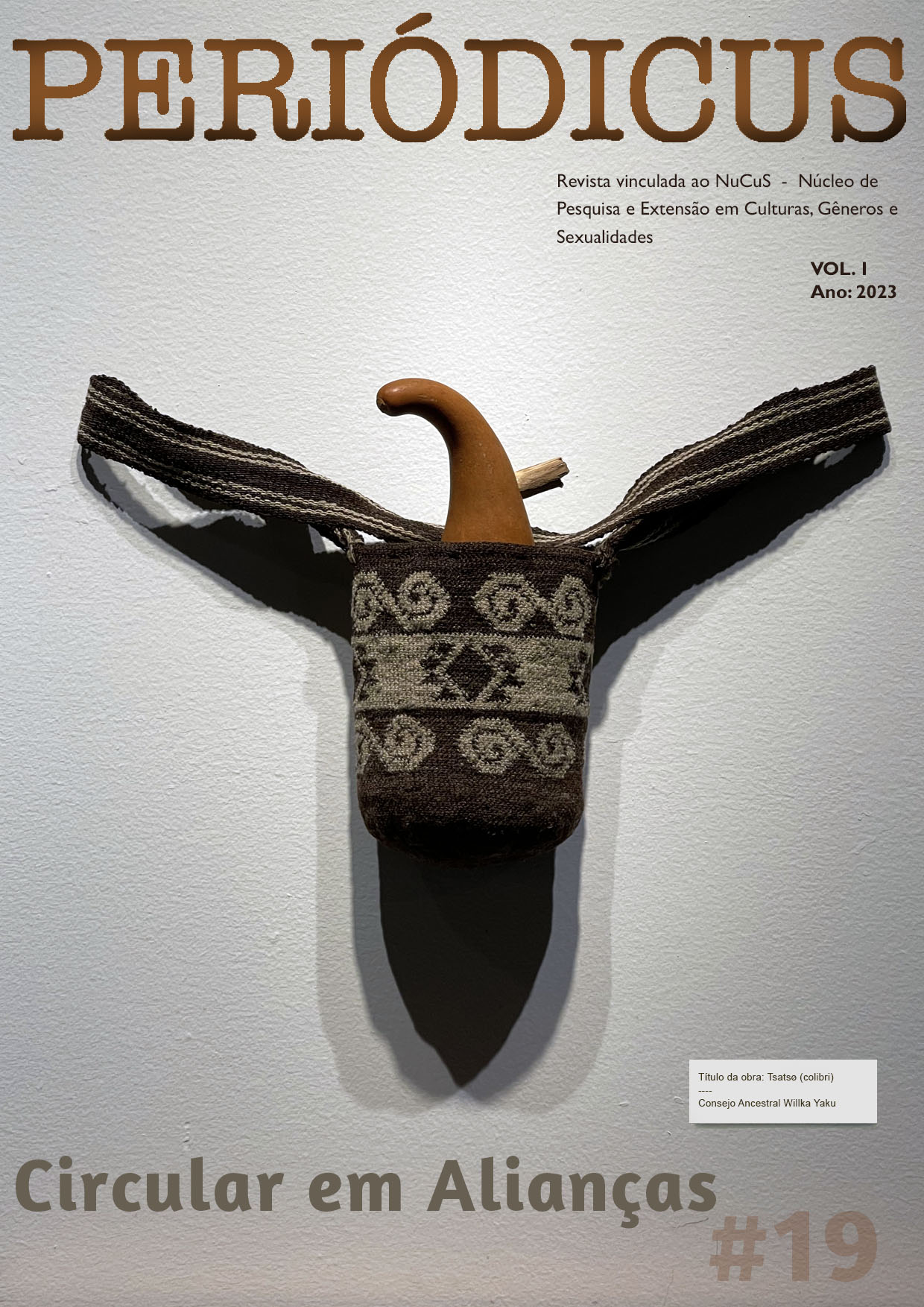Queer studies and the (cu)ir of studies
clues to access other hermeneutic resources
DOI:
https://doi.org/10.9771/peri.v1i19.52280Abstract
One can register an emergence of the field of queer studies from the 1980s, located in the conservatism of the United States and in the germination of social movements that placed themselves in the claim of questions related to the epidemic of HIV/AIDS in that decade. Its theoretical articulation reformulated the concepts of sex and gender, offering instruments to improve the understanding of this field. In the present study, we put this epistemic field in tension, with the narratives and knowledge of the “ass of the world”, based on the experiences of trans and transvestite people that offer clues to undertake the crooked and deviant paths through which it is possible to access other resources hermeneutics, with regard to gender and sexualities.
Downloads
Downloads
Published
How to Cite
Issue
Section
License
Copyright (c) 2023 María Antonella Barone, Alexsandro Rodrigues, Mariane Lima de Souza

This work is licensed under a Creative Commons Attribution-NonCommercial 4.0 International License.
Authors who publish in this journal agree to the following terms:
Authors retain copyright and grant the journal the right of first publication, with the work simultaneously licensed under a Creative Commons Attribution Noncommercial License that allows the work to be shared with acknowledgment of authorship and initial publication in this journal, but prohibits commercial use.
Authors are authorized to enter into separate additional contracts for non-exclusive distribution of the version of the work published in this journal (e.g., publishing in an institutional repository or as a book chapter), with acknowledgment of authorship and initial publication in this journal.
Authors are permitted and encouraged to publish and distribute their work online (e.g., in institutional repositories or on their personal website) at any point before or during the editorial process, as this can generate productive changes and increase the impact and citation of the published work (see The Effect of Open Access).








